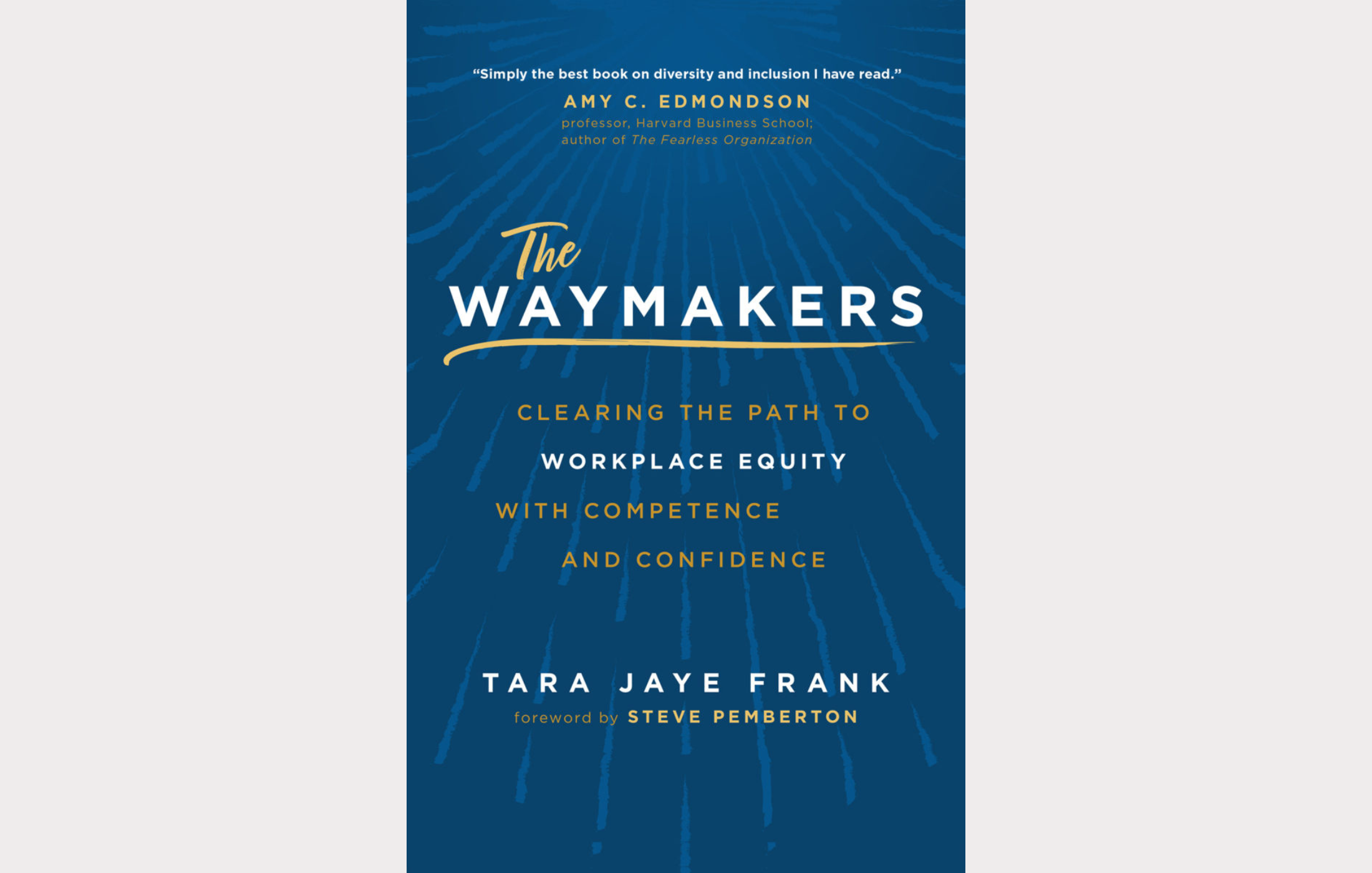resource library.
Creating Women of Color Leaders Through Purposeful Leadership
Shelleye | Shelly Archambeau
In the current business landscape, organizations have a unique opportunity to foster women of color leaders through purposeful leadership. While women of color contribute significantly to diversity, equity, inclusion, and employee well-being, their representation in top leadership positions remains limited. This article emphasizes the importance of recognizing the skills needed for leadership and offers ten strategies for employers to empower women of color in their careers. From providing training and development to prioritizing diversity and inclusion, these actions aim to bridge the leadership gap and create more equitable workplaces.
Mentors and Sponsors Make the Difference
Gallup | Kate Den Houter and Ellyn Maese
Talent development in organizations is a collective effort, and mentorship and sponsorship play crucial roles in cultivating employees' potential. This article explores the significance of mentorship and sponsorship in improving representation for women and racial/ethnic minority groups in management positions. It emphasizes the positive impact of formalized mentoring and sponsoring relationships on employees' development, engagement, and perceptions of equity.
How To Mitigate Confidence Erosion For Women At Work
Forbes | Marita Decker
Confidence erosion, Women in the workplace, Career advancement, Gender bias, Workplace equality, Diversity and inclusion, Career aspirations, Workplace challenges, Women empowerment, Corporate environment, Gender equality initiatives, Leadership support, Career disengagement, Inclusive work culture.
How Colorism Affects Women at Work
Harvard Business Review | Ruchika Tulshyan
Colorism, a deeply ingrained bias, adversely affects the lives and careers of darker-skinned women globally, perpetuating the legacy of colonialism and white dominance. This article sheds light on the importance of inclusive leadership in addressing colorism in the workplace, offering three strategies to disrupt this insidious bias. Leaders must recognize how colorism can manifest within diverse teams, including among individuals of the same community but with varying skin tones, to foster greater inclusion.
3 Strategies to Help Women of Color Navigate Biases at Work
Harvard Business Review | Hira Ali
Women of color often grapple with unique challenges in the workplace, including stereotypes, biases, isolation, and stress. This article explores the concept of "stereotype threat" and how it affects women of color. It provides three effective strategies to help women of color navigate workplace biases, overcome obstacles, and thrive in their careers.
The Psychological Toll of Being the Only Woman of Color at Work
Harvard Business Review | Ruchika Tulshyan
Being the only woman of color at work can exact a significant psychological toll, exacerbated by systemic bias and discrimination. This article delves into the mental health challenges faced by women of color in the workplace and highlights the urgent need for accessible mental health support tailored to their unique experiences. Danielle Jenkins Henry, a licensed marriage family therapist associate (LMFTA), offers four crucial strategies for women of color to prioritize their mental well-being in the face of systemic challenges.
An Open Letter From One of the Many WOC Leaving the Workforce in 2022
LinkedIn | Deepa Purushothaman
"Quiet quitting" has become a significant topic of discussion, especially among Women of Color (WOC) in the workforce. This open letter sheds light on the challenges and pressures faced by WOC in leadership positions, addressing issues such as diversity and inclusion, additional unpaid responsibilities, and the struggle to maintain authenticity in a corporate environment. It emphasizes the need for companies to create a safe and supportive space for employees to discuss their challenges and to genuinely invest in a culture that values every talented individual, regardless of their background.
The Waymakers: Clearing the Path to Workplace Equity with Competence and Confidence
Tara Jaye Frank
"The Waymakers: Clearing the Path to Workplace Equity with Competence and Confidence" by Tara Jaye Frank delves into the core of workplace equity and inclusion. It reveals that the key to advancing these ideals goes beyond policies and systems; it hinges on leaders who are committed to removing obstacles, opening doors, and guiding individuals toward success. In this book, Tara Jaye Frank uses case studies, data, and personal narratives to illustrate how leaders with influence can pave the way for workplace equity by understanding their current position in the equity journey, embracing necessary steps, and truly comprehending the needs of their employees.
Leaders, Stop Rewarding Toxic Rock Stars
Harvard Business Review | Deepa Purushothaman and Lisen Stromberg
Toxic rock stars, high performers who also behave as bullies at work, can have a detrimental impact on company culture, leading to high attrition rates, especially among women of color. Research shows that tolerating and rewarding such behavior can be costly for companies and drive away diverse talent. In an era where diversity is increasingly linked to better business outcomes, leaders need to prioritize creating inclusive and respectful workplace cultures.
Women of color can no longer buy into the ‘inclusion delusion’
Fortune | Deepa Purushothaman
"The recent confirmation hearings for Judge Ketanji Brown Jackson shed light on the challenges women of color face in the workplace, from heightened scrutiny of their qualifications to enduring microaggressions. This article explores the ""inclusion delusion"" that often plagues women of color in corporate America, where they may be highly visible but still feel like they don't belong or have real power. The author, Deepa Purushothaman, emphasizes the importance of creating spaces where companies genuinely listen to women of color, redistribute power, and establish policies that support them. As more women of color consider leaving traditional structures to create more inclusive cultures, businesses must adapt to retain diverse talent.
20% of White Employees Have Sponsors. Only 5% of Black Employees Do.
Harvard Business Review | Sylvia Ann Hewlett and Kennedy Ihezie
Executive sponsorship plays a pivotal role in advancing Black talent within organizations, yet only a small fraction of up-and-coming Black employees manage to secure sponsorship. This article underscores the challenges Black managers face in accessing sponsorship from senior colleagues, highlighting the need for urgent and well-funded interventions to facilitate access to advocacy for Black executives and managers. Sponsorship is a transformative relationship that accelerates career growth for both protégés and sponsors.
PowHER Redefined: Women of Color Reimagining the World of Work
PowHER Redefined: Women of Color Reimagining the World of Work | The Billie Jean King Leadership Initiative (BJKLI)
This white paper is an unfiltered exploration of the experiences of Women of Color (WOC) in the workplace. Drawing insights from over 1,500 surveyed WOC and further enriched by intimate salons and one-on-one interviews with Asian, Black, Latina, and White women, this report sheds light on why current corporate systems often hinder WOC from realizing their full potential. It serves as a platform to identify and discuss potential solutions to address these systemic challenges and create a more equitable work environment.
Women in the Workplace: Black Women
Women in the Workplace: Black Women | Lean In and McKinsey & Company
The 2021 Women in the Workplace report by Lean In and McKinsey & Company delves into the experiences of Black women in corporate America. They face disproportionate barriers, including bias in hiring and promotions, microaggressions, and racial trauma impact. Despite challenges, Black women actively contribute to diversity, equity, and inclusion efforts and serve as mentors and sponsors, highlighting the need for allies.
Why Pronouncing Names Correctly Is More Than Common Courtesy
NPR | Noor Wazwaz
Ruchika Tulshyan, the founder of Candour, an inclusion strategy firm, shares her journey of addressing the mispronunciation of her name and highlights the significance of pronouncing names correctly as an act of anti-racism and allyship. In this article, she encourages individuals to correct their own mispronunciations and those of others, emphasizing its role in supporting marginalized communities.
Does Your Definition of Leadership Exclude Women of Color?
Harvard Business Review | Marlette Jackson and Paria Rajai
Take your leadership skills to the next level by stepping out of traditional boundaries and embracing diversity. Learn how to expand your perception of leadership, recognize the value underrepresented groups bring to business, and take tactical steps for systemic change.
Women are drowning in unpaid labor at home. Stop making them do it at work
Fast Company | Minda Harts, Sarah Lacy, and Eve Rodsky
Unpaid labor at home is taking its toll on women, and now, Employee Resource Groups (ERGs) are adding to this burden by relying on unpaid work, primarily done by women and BIPOC. This article by Minda Harts, Sarah Lacy, and Eve Rodsky argues that companies must recognize and compensate individuals who drive ERGs, as these groups play a crucial role in fostering workplace inclusivity. While ERGs yield numerous benefits, from recruitment to retention, their value remains largely unpaid and unseen. Learn why it's time for corporate America to change this paradigm.
The checklist Black women and their office managers can use to find mentors who will advocate for them when it's time for promotions and salary raises
Insider | Marguerite Ward
In the wake of increased awareness of diversity, equity, and inclusion (DEI) initiatives, it's crucial for Black women to find mentors and sponsors who can advocate for them in the workplace, particularly when it comes to promotions and salary raises. This article highlights the significance of mentorship and sponsorship in addressing the barriers that often hinder Black employees, especially Black women, from advancing to senior-level positions. It provides actionable steps for both Black women seeking mentors/sponsors and leaders looking to be mentors/sponsors, emphasizing the need for awareness, relationship-building, networking, and self-confidence.
Women of Color Get Less Support at Work. Here’s How Managers Can Change That
Harvard Business Review | Zuhairah Washington and Laura Morgan Roberts
Women of color often possess confidence, ambition, determination, and desire, but they face unique obstacles at work that can hinder their advancement. Managers play a crucial role in supporting their progress. In this article, discover six actionable ways managers can provide effective support to black, Latina, and Asian women, including initiating social interactions, acknowledging their contributions, embracing candid feedback, addressing bias in hiring and promotions, and conducting insightful exit interviews.
How Women of Color Get to Senior Management
Harvard Business Review | Cindy Pace
Promoting women of color in leadership is crucial for organizations and the bottom line. Discover four key skills women of color can cultivate to advance their careers, along with steps organizations can take to foster diversity and inclusion in their leadership pipeline.
Women of Color Get Asked to Do More “Office Housework.” Here’s How They Can Say No.
Harvard Business Review | Ruchika Tulshyan
Women of color often find themselves burdened with "office housework" tasks, perpetuating stereotypes and potentially harming their careers. This article explores strategies for women of color to decline these assignments without facing backlash. From prepared responses to sharing the workload, learn how to navigate these situations while advocating for yourself.





















